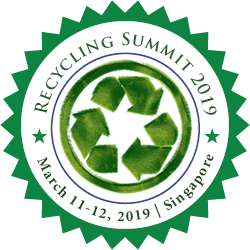
Sabyasachi Sengupta
Confederation of Indian Industry, India
Title: Resource Conservation Initiatives by Indian Industry
Biography
Biography: Sabyasachi Sengupta
Abstract
India has drawn world’s attention with its high paced urbanization and industrialization. Over the last decade, India has emerged as the fastest growing country with rapid economic growth. Having the 10th largest GDP growth; India continues to strive towards excellence in industrial and service sectors. The growth in the resource intensive Manufacturing sector is enabled and facilitated by an ever-increasing rate of resource consumptions like energy, water, material leading to manifold and impacts the environment. Higher consumption & usage of natural resources leading to ecological imbalances in the surrounding environment through various types of waste generation, air emissions as well as effluent run-off, resulting in improper disposal of solid wastes.
Over last decade, Indian Industry is has learnt to adopt smarter, cleaner growth strategies to improve its efficiency and competitiveness and to help build a low carbon economy in the country. The growth of the manufacturing sector is focused to be made environmentally sustainable through adoption green technologies, water and energy efficiency, and optimal utilization of natural resources and restoration of damaged / degraded eco-systems.
With the increasing pressure on Indian industry from both the public and regulatory agencies to manage their wastes effectively, this paper highlights various approaches considered by Indian industries for sustainable waste management. The major areas of utilization of both hazardous and non-hazardous industrial wastes utilization of waste as alternative energy sources and also as raw material. These options provide economic and environmental friendly alternative, compared to conventional practice of destining all the waste generated to landfill.

